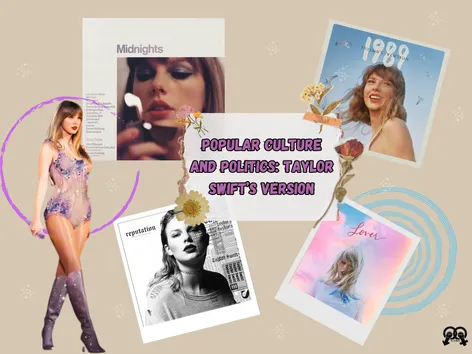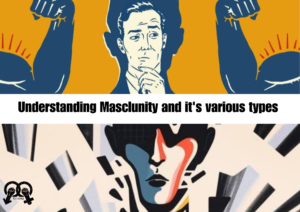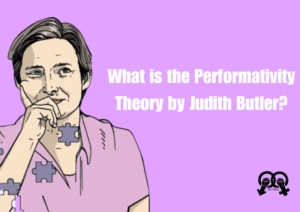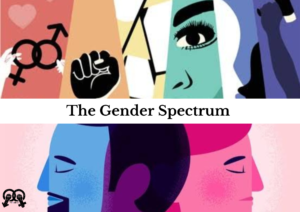Learning Outcomes:
- Understand the concept of popular culture and explore the intersection of popular culture and politics that shape political discourse.
- Examine the fine line between artistry and activism, and how artists like Taylor Swift navigate political engagement through their work
- Discuss Taylor’s effort to create social change through her songs (importance of youth engagement in politics, tackling gender stereotypes, etc.)
- Critically assess Taylor Swift’s impact on political discourse, particularly through songs like “You Need to Calm Down,” which promotes the LGBTQIA+ community and the diverse reactions it gained
Pop Culture and Politics
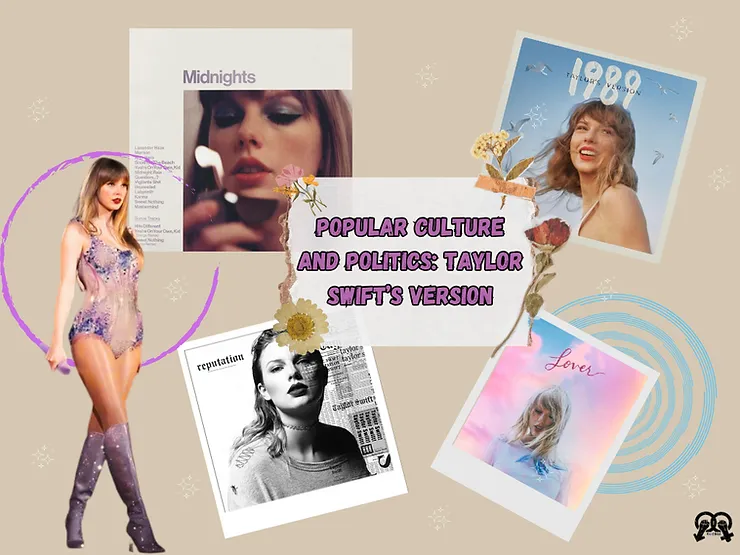
Navigating through Artistry & Activism
"You brace for the sound// You’ve only heard on TV// You go to class, scared// Wondering where the best hiding spot would be"
"What I was wearing// If I was rude// Could I be separated from my good ideas and power moves"
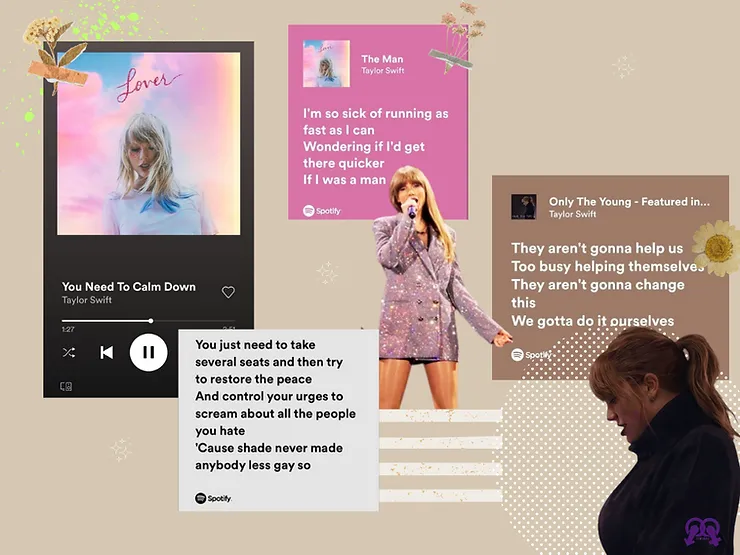
Criticism: Swift's Impact on Political Discourse
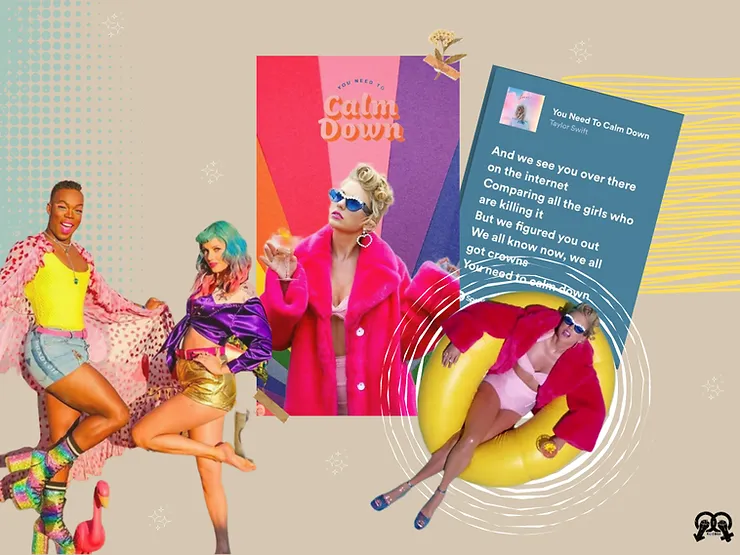
"To be an ally is to understand the difference between advocating and baiting. Anyone trying to twist this positivity into something needs to calm down."
(Taylor Swift on Tumblr, 2019)
“You are somebody that I don’t know / But you’re taking shots at me like it’s Patrón” Swift’s song goes. Beginning with “You Need to Calm Down,” Swift continues with lyrics that seem to be centred on the online hostility she has seen throughout her career, singing about tweets and internet lurkers. The song then changes gears and shifts its focus to denouncing the discrimination of LGBTQ individuals, using the phrase “shade never made anybody less gay” and more references to parades and gowns.
Conclusion
References
Aniftos, Rania. “A Timeline of Taylor Swift’s Generosity”. Billboard Music News ( 2021). Retrieved from https://www.billboard.com/music/music-news/timeline-taylor-swift-generosity-8481430/
Atri, Ananya. “Japan’s Rocks or Japan Rules: Japan and China’s East China Sea territorial dispute”. Vitascope, International Black Sea university, no. 1 (2023): 12-16. Retrieved from https://ibsu.edu.ge/wp-content/uploads/2023/06/VItascope-2023.pdf
Bennett, Tony, et al., eds. “The Cambridge Handbook of Sociology of Popular Culture”. Cambridge University Press (2013).
Binarythis. “Capitalism is Why We Can’t Have Nice Things: Queer Utopian Dreaming with Taylor Swift.” BINARYTHIS (2019). Retrieved from https://binarythis.com/2019/06/24/capitalism-is-why-we-cant-have-nice-things-queer-utopian-dreaming-with-taylor-swift/.
Bravo, Tony. “No, Taylor Swift, you need to calm down. Gay pride isn’t about you.” Datebook (2019)
Driessen, Simone. “Taylor Swift, political power, and the challenge of affect in popular music fandom.” Transformative Works and Cultures 32 (2020): 17.
Driessen, Simone. “Taylor Swift, political power, and the challenge of affect in popular music fandom.” Transformative Works and Cultures 32 (2020): 17. Retrieved from https://journal.transformativeworks.org/index.php/twc/article/view/1843/2353
Gutowitz, Jill. “It’s Great That Taylor Swift Now Supports Queer People, but Her Messaging Needs Some Work.” GLAMOUR (2019). Retrieved from https://www.glamour.com/story/taylor-swift-now-supports-queer-people-you-need-to-calm-down.
Jennings, Rebecca. “Taylor Swift’s “You Need to Calm Down” wants to be a queer anthem. It also wants to sell you something.” Vox (2019). Retrieved from https://www.vox.com/the-goods/2019/6/17/18682588/taylor-swift-you-need-to-calm-down-gay-anthem.
Khan, Fawzia. “The Might Of Taylor Swift”. Elle India (2021). Retrieved from https://elle.in/the-might-of-taylor-swift/
Kidd, Dustin, Jennifer Kim, and Amanda Turner. “Popular Culture.” Chapter. In The Cambridge Handbook of Sociology: Specialty and Interdisciplinary Studies, edited by Kathleen Odell Korgen, 2:284–92. Cambridge: Cambridge University Press (2017).
Kye, Madelyn. “The problem with Taylor Swift’s political activism.” News Letter (2019). Retrieved from https://www.jhunewsletter.com/article/2022/09/the-problem-with-taylor-swifts-political-activism.
Mahajan, Falguni. “Pride Month Marketing: Striking the Balance between Authenticity and Commercialization.” BGLSocials (2023). Retrieved from https://www.bglsocials.com/post/pride-month-marketing-striking-the-balance-between-authenticity-and-commercialization.
MODA. “Blog Post | On Taylor Swift’s Longstanding Cultural Impact.” MODA Blog (2021). Retrieved from http://www.modachicago.org/blog/2021/2/15/on-taylor-swifts-longstanding-cultural-impact.
Mukerji, Chandra, and Michael Schudson. “Popular culture.” Annual Review of Sociology 12, no. 1 (1986): 47-66.
Oczypok, Kate. “Taylor Swift’s Impact on Pop Culture and Beyond”. Georgetown Media group (2023). Retrieved from https://georgetowner.com/articles/2023/06/22/taylor-swifts-impact-on-pop-culture-and-beyond/
Street, John. “Celebrity Politicians: Popular Culture and Political Representation.” British Journal of Politics and International Relations 6 no. 4 (2004): 435–52. Retrieved from https://doi.org/10.1111/j.1467-856X.2004.00149.x.
Strinati, Dominic. An introduction to studying popular culture. Routledge (2014).
Strinati, Dominic. An introduction to theories of popular culture. Routledge (2004).
Welds, Jutta, Rowley, Christina. “So, How Does Popular Culture Relate to World Politics?”. E-International relations (2015). Retrieved from https://www.e-ir.info/2015/04/29/so-how-does-
Wilcox, Emily. “An Investigation of the Intersection between Art and Activism“. Honors College Capstone Experience/Thesis (2009). Retrieved from https://digitalcommons.wku.edu/stu_hon_theses/275/
Wilkinson, Maryn. “Taylor Swift: the hardest working, zaniest girl in show business” Celebrity Studies 10, no. 3 (2019): 441-444.
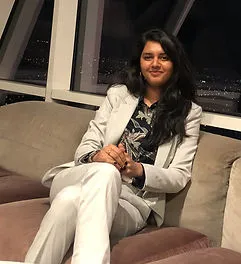
Ananya Atri is an International Relations student and currently interns at the Centre for Interdisciplinary Research at her university. She has been part of Global Youth India and currently serves as the Director of Communications at NGO Cultural Diversity for Peaceful Future in Georgia. Her interest in writing for Mandonna stems from her belief in equality and inclusion.

Khushi Oberoi is a Political Science graduate from LSR. Her academic journey has led her to understand the world’s political landscape and its impact on society and women in particular. She has a deep love for teaching and animals. Her commitment to animal welfare extends to her professional life, where she runs a small business entirely staffed by women. This venture not only reflects her dedication to gender equality but also allows her to channel my love for animals into tangible change.
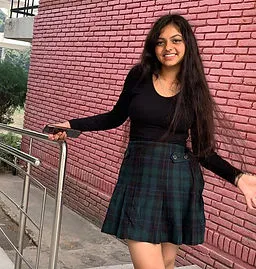
Sakshi is a 19-year-old literature student who is right now enrolled at Delhi University. She aspires to keep creating things through different art mediums ranging from music, and filming to writing.
Editing Credits

Prachi Oberoi is an undergraduate student at Lady Shri Ram College for Women, University of Delhi pursuing a B.A. Political Science Honors. Her keen interests lie in the topics like gender equality, environmentalism, and international relations. With every academic piece that she is associated with, she tries to broaden her intellectual horizons and share a novel, yet important learning to the world!

